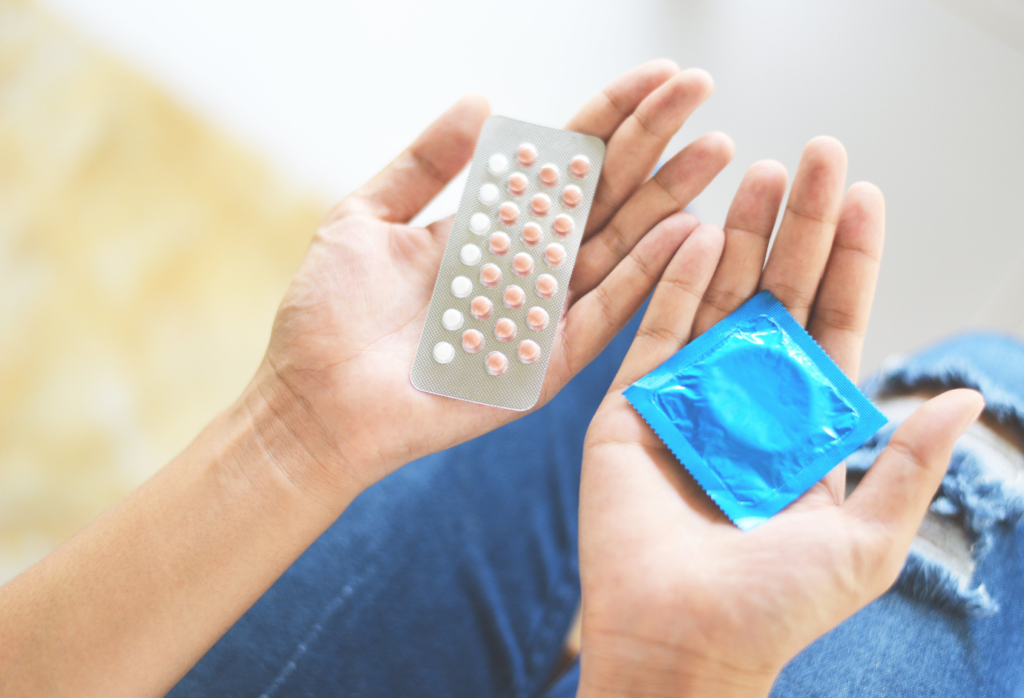For young Australian women, ensuring access to reproductive health such as contraception, IVF, and abortion remains one of the most pressing concerns in the finals days before the Federal Election.
More than 500 young Australians were surveyed in a poll conducted by healthcare technology company Eucalyptus, measuring their attitudes on sexual health, education and wellbeing. The poll, commissioned by sexual wellness company Normal, attracted respondents who were were mostly between 18-25, female, heterosexual, child-free and in a long-term relationship.
Respondents cited growing concerns around reproductive health access, followed by sexual health and relationship education in schools. And while authors of the report noted that reproductive health is “not necessarily under threat” in Australia right now, the debate around abortion rights in the US, with the expected reversal of Roe v. Wade, could be weighing on the minds of young, female voters.
Meanwhile, three quarters of respondents stressed the importance of protecting LGBTQI+ students and adults from discrimination in schools and workplaces, while 70 per cent highlighted the importance of ensuring access to ‘safe sex’ healthcare such as STI testing.
Respondents felt that improving the workplace culture of Federal Parliament, in relation to sexual assault and harassment issues raised in recent years was also a critical election issue, as well as believing that party leaders genuinely care about sexual assault, harassment and LGBTQI equality.
“Ensuring access to abortion stays legal is now key in my voting,” one respondent said.
“I struggled a lot when I was growing up in school and out, dealing with who I am, I hope for a better future for others,” another respondent said.
70 percent of respondents emphasised the importance of implementing legal reforms around consent and sexual assault.
The most crucial voting issues for female identifying people, was access to reproductive healthcare, followed by better sex and relationships education in school, and protecting LGBTQ students and adults from discrimination.
Non-binary and genderqueer people were most concerned about access to gender-affirming healthcare for trans Australians such as hormone therapy, mental health services and protecting LGBTQ students from discrimination in schools and providing sex education which addresses LGBTQ students.
“Trans people are not a political football and deserve access to safe affirming health care,” one respondent said.
Respondents who rated the issues raised in the survey tended to vote for the Greens, followed by the Labor party and Independents.
Labor respondents had the widest variation, with roughly one third saying these issues were extremely or very important, and another third saying they did not matter at all.
Women’s sexual wellness has seen an extraordinary evolution in the past few years, and has become an important aspect of women’s lives.
Last September, Normal, a female-owned sexual wellness brand based in Australia, launched an adults sex-education e-course to combat misinformation and prejudice in sex education in Australia. The 15-lesson e-course called ‘The Modern Guide to Sex’ takes advantage of the global rise of ‘sex-tech’: companies that aim to normalise sexual wellness and sexual health.
Normal is one of the leading sex positivity companies in Australia, founded by Sydney-based sexual wellness advocate Lucy Wark. Wark’s impetus for launching Normal stemmed from a pursuit to revolutionise intimacy and wellness after she struggled to find a guide that could help make exploring sexuality easier.
Elsewhere, a recent paper published in the US revealed that the women’s sexual wellness market will “witness astonishing growth by 2029.”


